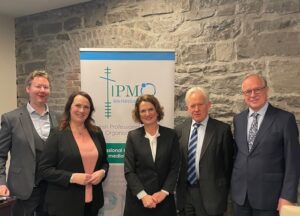Dr Róisín O’Shea BL, Partner Arc Mediation and Chair of the IPMO
Are mediated settlements legally binding? “Absolutely” says Michael Peart, former judge at the Court of Appeal and now mediator.
In his Linkedin post of September 16th 2024 Michael goes on to say:
“Once both parties have agreed the terms of settlement and have signed the agreement, it is legally binding and enforceable as with any other contract.”
It is hugely beneficial to both the public and mediators to have the law stated so clearly by someone of Michael’s standing in the legal community.
Section 11 of the Mediation Act 2017 gives you and the other party the right to have a mediated agreement that is legally binding (enforceable). This is your decision, as set out in section 11(1)(b) of the Act, and simply put if you both agree that the mediated agreement is intended to be legally binding, then it is.
This could be a Separation Agreement or an agreement for a Judicial Separation or Divorce, or a resolution (mediation settlement) of any other civil dispute, reached with the assistance of a mediator. Where your mediated agreement has a clause saying that it is to be legally binding between you, that agreement can be brought to Court later to be enforced or to be “Ruled” ie the Court can be asked to turn the mediated agreement into court orders. A mediated agreement can be enforced where one person breaches or intends to breach that agreement. Where an agreement is reached with the assistance of mediators for a Judicial Separation or Divorce, an application can be made to the Court to grant orders ‘on consent’ (by agreement); the mediated agreement can be submitted to the Court and the application drafted by a barrister will set out the Orders that are required based on that agreement.
A former solicitor, Michael served as a Judge of the Court of Appeal from 2014 to 2019 and was a Judge of the High Court from 2002 to 2014. As a guest speaker at the Irish Professional Mediators’ Organisation’s annual conference on March 7th 2024 at the Dublin Dispute Resolution Centre, he spoke about mediation as a place where a mediator assists the parties to reach their own agreement avoiding the stress and additional cost of litigation. He also spoke about raising awareness generally about the potential of section 16 of the Mediation Act 2017, where a party can ask the judge to invite both parties to try mediation, or the judge can decide to invite the parties to adjourn and try mediation, and he noted the fact that mediation is possible at any time right up to the point of a final determination (final court orders).

